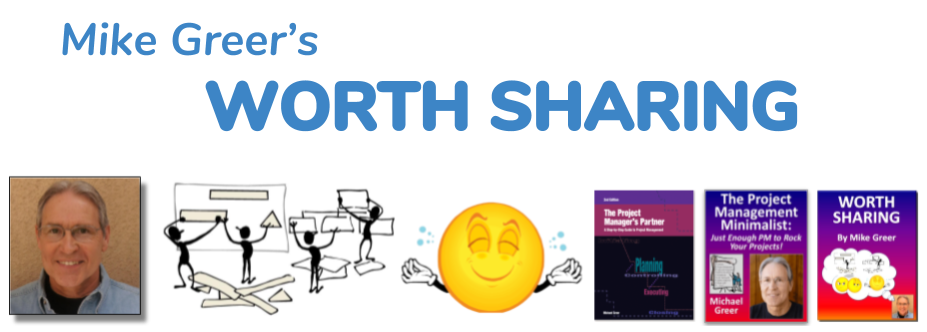Did you ever recommend an article or an opinion piece to someone and, when you follow up to get their reaction, have them respond with TLDR (too long, didn't read)? I have. And it's disappointing, to say the least. But it's also puzzling. I guess that's because I really enjoy essays... developed thought... the assertion of a challenging thesis followed by supporting ideas, etc. And the concept of TLDR dismisses all of that.
Bullets & Videos to Grab Quick Scrollers
In response to those suffering from TLDR, those who publish web content have begun to adapt. Some sites that publish well-developed and well-researched articles have begun presenting bulleted lists at the beginning of their pieces. Others have begun to pop in brief video summaries just below the headline to grab attention with some of the article's big ideas in non-verbal, visual form. The object of the game is to encourage the engagement of quick-scrolling passers-by and keep them on the site.
Now, before you think me a complete snob, I will confess that I usually scroll quickly through my customized Google news feed and rarely go below the headline and the previewed or "teaser" first sentence of a recommended article. (There's just so much to see!!) Sadly, I must admit that my inclination to engage content deeply is slowly eroding and being replaced by the scroll and scan. In my more reflective moments, I have wondered if I am suffering from a self-inflicted attention deficit disorder! As a result, I am haunted by the possibility that I'm missing the deeper, more developed thoughts struggled over and shaped by the author and then presented as substantiation for the headlines.
Our ancestors could handle complexity!
It's instructive to put this in a broader historical context. Our predecessors wrote, and their readers were able to decipher, quite complex written pieces. The writing presented challenging, nuanced and typically well-supported ideas. And the readers had the intellectual chops to unravel, translate and comprehend them. Consider a couple of examples.
Below is a single sentence written by economist and philosopher David Hume in 1741:
"It will be found, if I mistake not, a true observation in politics, that the two extremes in government, liberty and slavery, commonly approach nearest to each other; and that, as you depart from the extremes, and mix a little of monarchy with liberty, the government becomes always the more free; and on the other hand, when you mix a little of liberty with monarchy, the yoke becomes always the more grievous and intolerable." -- David Hume, 1741 https://davidhume.org/texts/empl1/lp
And here's a one-sentence satirical example from 1729 written by Hume's contemporary Jonathan Swift:
"I think it is agreed by all parties, that this prodigious number of children in the arms, or on the backs, or at the heels of their mothers, and frequently of their fathers, is in the present deplorable state of the kingdom, a very great additional grievance; and therefore whoever could find out a fair, cheap and easy method of making these children sound and useful members of the commonwealth, would deserve so well of the publick, as to have his statue set up for a preserver of the nation." -- from A Modest Proposal by Jonathan Swift, 1729 https://www.gutenberg.org/cache/epub/1080/pg1080-images.html
I know that my own grandfather, who had but a high school education and earned his living as a factory laborer and house painter, made it a point to introduce me to lots of classic books from his personal library. And he would have had no trouble connecting with the long-form sentences above. However, today's readers, no matter how well educated, would likely find these sentences to be quite challenging to unravel. Such writing demands an engagement and effort that could seem overwhelming to those whose greatest mental challenge is skimming and forwarding tweets, Instagram memes or Facebook links. So I'm guessing many of today's readers would simply ignore them and keep scrolling.
Is humanity's literacy a lost cause?
So I leave you with a couple of simple questions: If we are losing the ability (or at the least the inclination) to create and engage subtle, nuanced writing are we also losing a critical intellectual capacity that is one of the defining characteristics of humanity? And, if you answer this in the affirmative, what should we do about it?

